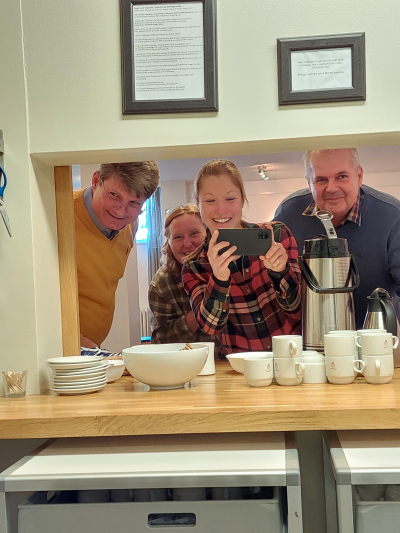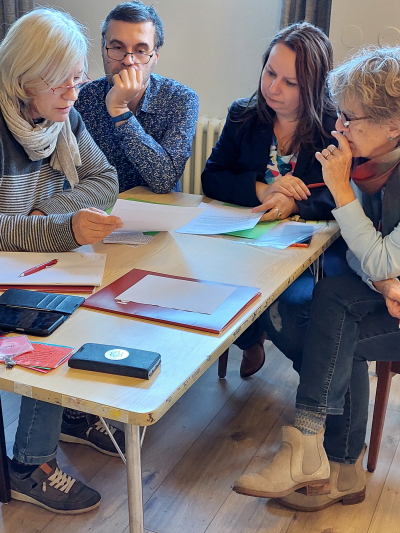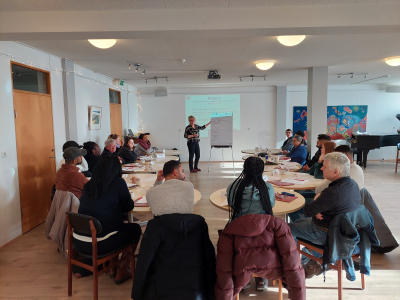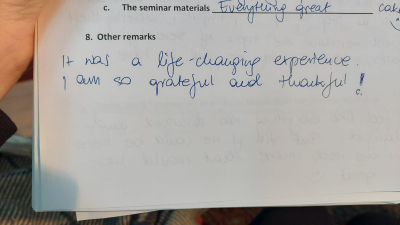The main focus will be how to reach at risk disadvantaged learners participating at any level or type of education or training. This will be done through different co operative learning methods. In reaching and teaching these learners we are better able to ‘keep them’ – increasing retention.
Target group: The target group is schools, colleges and any kind of educational organisations which have strategies or core aims of improving learners key competencies including: cooperation and communication skills, initiative, critical and creative thinking and citizenship. Additionally, to prevent early school leaving and embedding key competencies within the subject curricula.
Participants could be teachers, senior managers, head teachers and other staff responsible for teaching and learning at all levels of non compulsary education from secondary, further, higher and adult education in both academic and vocational areas.
Preparation: Participants will be expected to read the program and material sent to them before the course commences.
Aims:
The participants will discuss different school systems in Europe, systems of non-compulsory education and reasons for drop-out or non participation of students at risk of early school leaving. The reasons for limited access of disadvantaged groups to education will be discussed and different ways of reaching the target groups and associated teaching methods will be discussed and presented. The teaching methods during the course will mirror those introduced and proven as effective in reaching diverse groups of students, increasing positive student to student interaction creating a trusting and safe learning environment. The participants will be sensitized to different reasons for absence or drop out for at risk
Methodology: The course methods will be varied: theoretical contributions, discussions, practical exercises in small groups and presentations. The emphasis will be on practical and active cooperative learning structures and participants will have the opportunity to try different ideas. This, rather than theoretical input will be the main focus. The methods introduced will be used actively during the course. All participants should be able to discuss and present in English language as simultaneous translation will not be possible.
Outcomes: After the course the participants will have ideas and ways to involve diverse groups of students in their own courses. At the end of the course will have thought of and discussed ways to reach less privileged target groups, how they will purposefully work towards a safe and trusting class athmoshpere and how they plan to organize their teaching and assessment in order to ensure equal access for all learners to the learning process and increase retention.
Follow up: On return to their home locations participants will try out the different approaches with their learners and share their experience and material with other participants through e-mail and on an internet platform if they choose to. The main trainer will also give feedback and counselling if required.
The main trainer of the course is sociologist, teacher and teacher’s trainer Guðrún Pétursdóttir
Guðrún Pétursdóttir finished her master’s degree in sociology from the Freie Universität Berlin. Besides sociology she also studied intercultural education at the Institut für interkulturelle Erziehung at the same university and later finished the teacher’s qualification at the University of Iceland. For the last 25 years Guðrún has worked in different fields connected with migration issues and teachers training and has since 2003 ran the independent centre InterCultural Iceland (www.ici.is). She taught courses at the pedagogical department of the University of Iceland from 2003-2009. She has run Grundtvig/Comenius/Erasmus+ In-service training courses for teachers and educators since 2004, developed cooperative learning methods and materials and she is the author of three books: Intercultural education (1999), Everyone can do something nobody can do everything; a practical handbook for teachers (2003) and Diverse Society Diverse Classrooms; Critical, Creative, Cooperative and Interculturally Competent Learners and Teachers Ready for the 21st Century (2018)
You can watch a short videos and photos from the course on our fb page: https://www.facebook.com/InterCultural-Iceland-263369640353211/
For any further information and a more detailed program, please contact us: ici@ici.is



